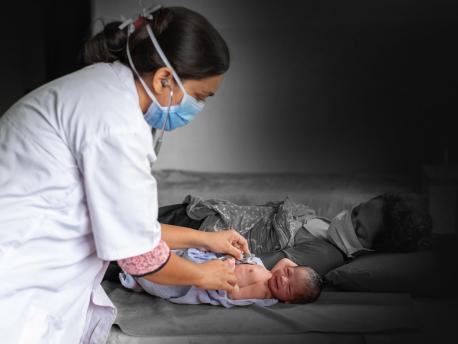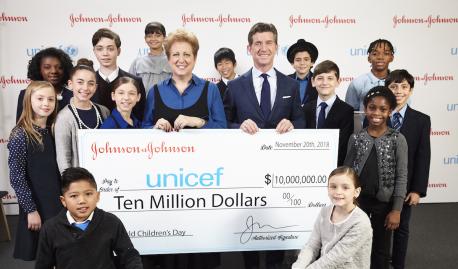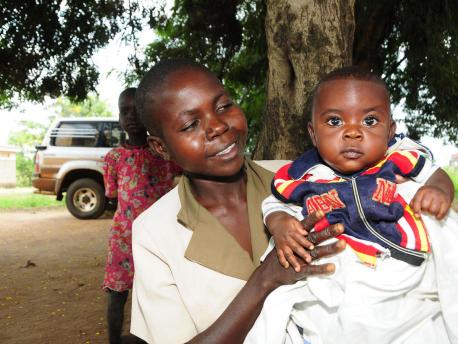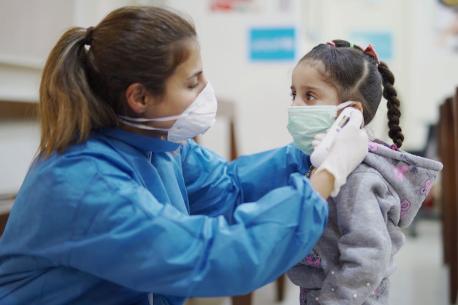
Supporting Health Workers Aids Mothers and Pregnant Women in Beirut
The August 4, 2020 explosion, which ripped through Beirut’s port area and left 220 dead and 6,000 injured, plunged families already struggling amidst Lebanon’s economic collapse, food insecurity and COVID-19 into deeper crisis.
The blast devastated a large swath of the city, destroying lives, homes and infrastructure. The area hardest hit was Karantina, a neighborhood next to the port and home to Beirut’s most vulnerable Lebanese and Syrian refugee families. As businesses were destroyed, tens of thousands of workers lost their jobs, leaving them unable to feed their families. The Karantina state-run hospital and its affiliated Primary Care Center were also heavily damaged, leaving pregnant women and mothers with no easy access to health services.
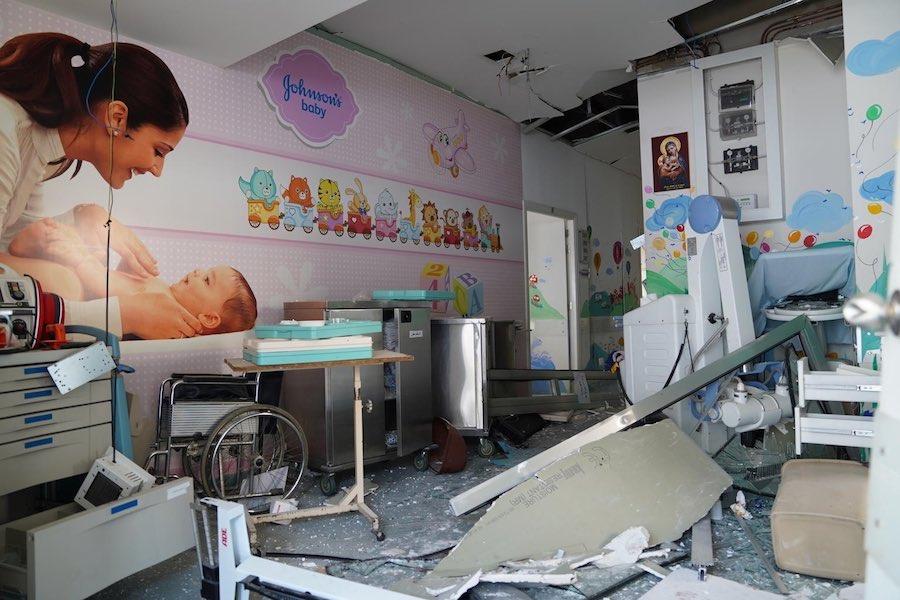
With Beirut’s long-term recovery in mind, UNICEF worked with Lebanon’s Ministry of Public Health and partners to restore Karantina residents' health care. The Karantina Hospital (above), which houses the area's only neonatal intensive care unit and Lebanon’s national childhood vaccination programs, is being rehabbed with UNICEF support to drastically increase capacity in the newborn unit and the maternity and obstetric ward. The hospital rehab should be completed in early 2022. But in February 2021, Karantina's refurbished Primary Care Center reopened, offering medical exams and treatment, free of cost except for a one-time donation of just 25 cents, so pregnant women and mothers who have no health insurance could receive high-quality care.
“Trying to find enough money to cover my expenses is not easy in today’s Lebanon," one 35-year-old woman said after her free pregnancy ultrasound scan. "I am delighted to have been able to check on my baby through this program. I thank God that someone is thinking of us and helping us."
Strengthening health systems and providers' resilience
The changes at Karantina Primary Care Center are part of UNICEF's work to strengthen Lebanon's national health infrastructure and support the frontline health workers who are the backbone of those systems. In Beirut, where dedicated health workers have cared for patients throughout multiple crises, this assistance is needed now more than ever.
As part of a 10-year commitment to building a thriving health workforce across the globe, the Johnson & Johnson Center for Health Worker Innovation (CHWI) is partnering with UNICEF to strengthen health systems and provide critical support, skills training and resources to frontline health workers. In 2020, CHWI and UNICEF Lebanon committed to work together to build the capacity of health workers by strengthening local primary and community health services to improve access and quality of care for pregnant women, mothers and their newborn babies.
With Johnson & Johnson (J&J) support, UNICEF and local partners are collaborating with Lebanon's Ministry of Public Health on a three-pronged approach that focuses on the nation's caregivers, patients, and health facilities. Through these efforts, the Karantina Hospital and other public hospitals can now offer higher quality care to those who need it most.
Giving patients the power to move forward
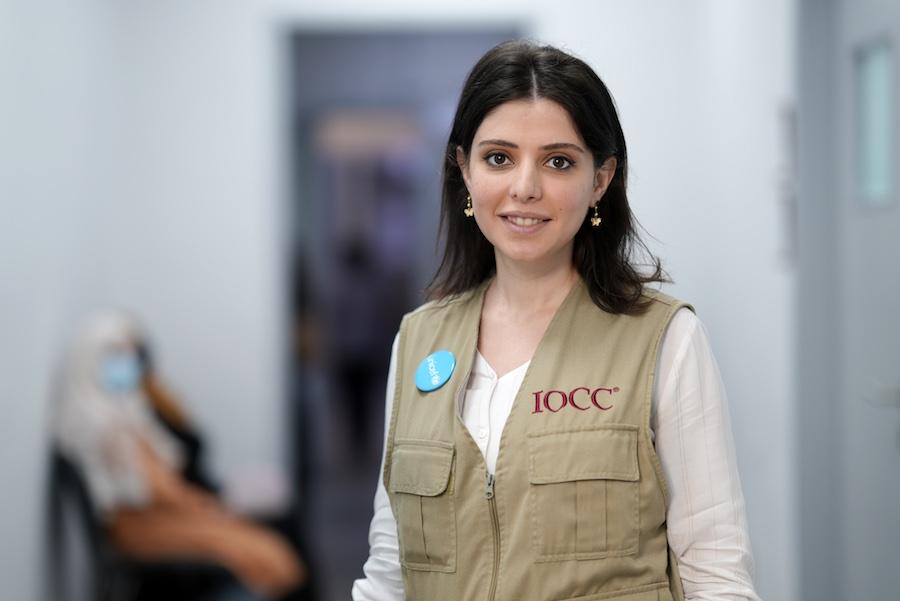
When patients arrive at Karantina Primary Care Center, Christelle Debs (above) greets them with the good news that they may qualify for free health care thanks to a new UNICEF-J&J program for mothers and babies. Pregnant women and mothers can now receive prenatal, delivery and postnatal care along with newborn care and immunizations and nutrition for children ages 6 months to 59 months.
Since the program launched, the number of Karantina patients has risen 60 percent as pregnant women and mothers who have used the facility's services spread the word that cost is no longer a barrier to high-quality care. That's gratifying for Debs, who is relieved that families who have borne the brunt of COVID-19's and the explosion's economic shocks can achieve good health and peace of mind. “I take the pain of others and turn it into power as they move forward.”
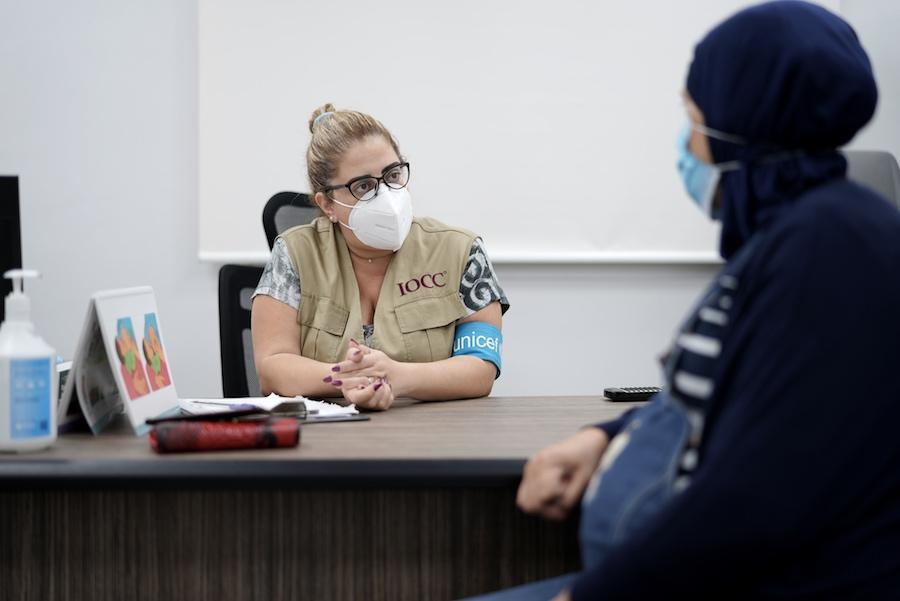
A midwife for 22 years, Aline Tabet (above) has helped bring many babies into the world. Those she's met since Karantina reopened offering subsidized medical care are among the more fortunate. The pregnant women and new mothers who attend Tabet's daily lactation clinics are eager to learn everything they can about breastfeeding and the basics of hygiene and nutrition. And thanks to her UNICEF-J&J training, Tabet feels more capable and better equipped to provide answers.
“The right words from me can change the direction of a newborn baby’s and their mother’s lives," she says.
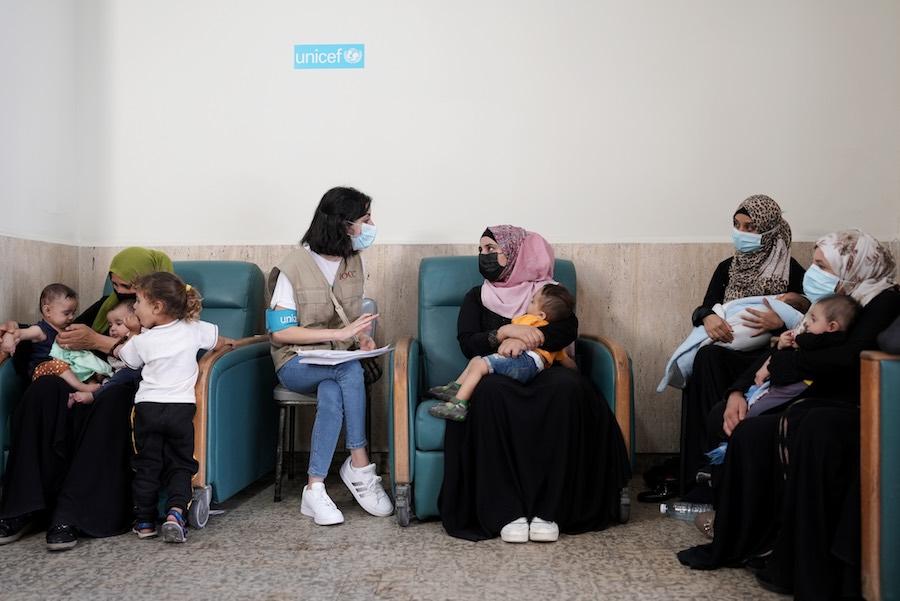
Community Educational Support Assistant Suzanne Faraj (above) joined the UNICEF-J&J team at Karantina hospital in April 2021. Since then, Suzanne has provided mothers with valuable information and guidance on such topics as breastfeeding and nutrition at no cost, work she acknowledges helps combat the stress of living in Lebanon today.
“Being able to support vulnerable families actively is a great privilege," says Suzanne. "Knowing that I am well-equipped to help improve so many mothers’ and babies’ quality of life gives value to my own life during these difficult months.”
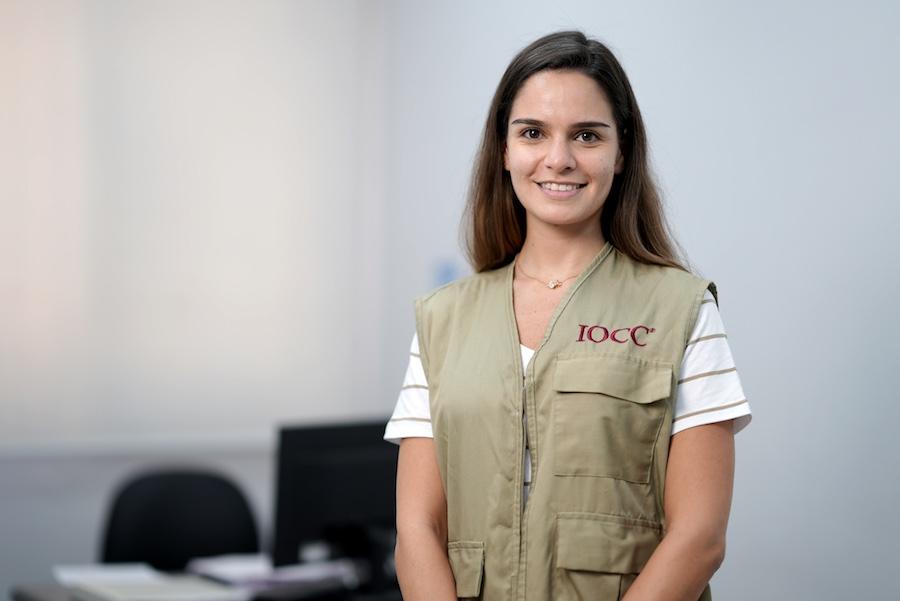
As a Health Area Coordinator for six years, Joyce Hayek (above) has seen mothers neglect their own health for the sake of their children's. This dangerous self-sacrifice has become ever more common since Lebanon's economic crisis put the cost of food and health care out of reach for many families. Helping mothers and pregnant women care for themselves and their children is one goal of the community outreach J&J's multi-year funding provides.
“At times like these, new mothers often don’t know who to turn to, who to trust,” explains Joyce. “They’re delighted when outreach workers, quite literally, knock on their door.”
Top photo: A nurse takes a girl’s temperature at a primary health care center in Beirut, Lebanon. All photos: © UNICEF/Choufany
HOW TO HELP
There are many ways to make a difference
War, famine, poverty, natural disasters — threats to the world's children keep coming. But UNICEF won't stop working to keep children healthy and safe.
UNICEF works in over 190 countries and territories — more places than any other children's organization. UNICEF has the world's largest humanitarian warehouse and, when disaster strikes, can get supplies almost anywhere within 72 hours. Constantly innovating, always advocating for a better world for children, UNICEF works to ensure that every child can grow up healthy, educated, protected and respected.
Would you like to help give all children the opportunity to reach their full potential? There are many ways to get involved.



